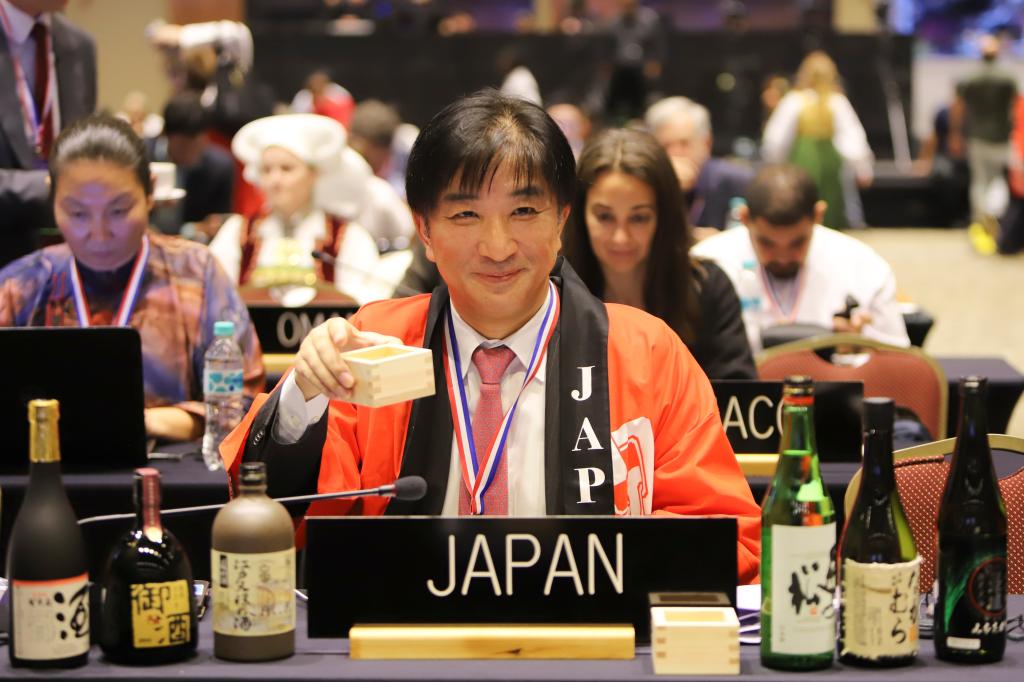Sake Recognized as Japan's Intangible Cultural Heritage
Explore how sake, Japan's revered rice wine, received UNESCO recognition as an intangible cultural heritage, celebrating its rich history and cultural significance.

Key Points
- Sake has been recognized by UNESCO
as an intangible cultural heritage, highlighting its significance in Japan's culinary traditions and cultural identity.
- The production of sake involves a meticulous process that has been practiced for over a thousand years, emphasizing its historical and cultural importance.
- This recognition is expected to boost Japan's sake exports and revive interest in traditional sake brewing among younger generations.
Sake, a smooth and delicately brewed rice wine, holds a cultural significance in Japan that rivals even the famous sushi. Recently, this divine drink has been honored by UNESCO as an intangible cultural heritage of humanity, emphasizing its vital role in Japan’s culinary traditions. This esteemed recognition not only highlights the intricate craftsmanship involved in sake production but also its historical importance that spans over a millennium. In this blog post, we'll delve into the fascinating story of sake, its cultural implications, and what this UNESCO designation means for Japan's future.
The Journey of Sake Production
At the heart of sake craftsmanship lies a time-honored process involving four primary ingredients: rice, water, yeast, and koji—a special mold used to decompose rice starches into fermentable sugars. The entire production process requires meticulous attention and can take up to two months, encompassing steaming, stirring, fermenting, and pressing. To illustrate, the rice must be of Japanese origin, ensuring that any sake produced bears the mark of its rich heritage.

This labor-intensive method is what distinguishes Japan’s sake from other rice wines globally. The craftsmanship involved is not just about making a drink; it's about preserving a tradition that is integral to Japan's identity. Sake has been part of Japanese ceremonies and celebrations, enjoyed at weddings and special events, linking generations of people through shared experiences.
A Historical Perspective
Japan's relationship with sake dates back over a thousand years. For instance, it is referenced in Japan’s 11th-century classic, "The Tale of Genji", where it was the drink of choice among the aristocratic Heian court. This literary acknowledgment is more than mere fiction; it illustrates the deep cultural significance that sake has held throughout Japanese history.
With the recent UNESCO designation, there is a notable encouragement to renew interest in traditional sake making. Japanese officials express hope that the recognition will revive sake's image as the premier alcoholic beverage of Japan, especially as younger generations gravitate toward imported wines and beers. Japanese Ambassador to UNESCO, Kano Takehiro, remarked, “This will help to renew interest in traditional sake elaboration”.
The Economic Impact of UNESCO Recognition
The impact of UNESCO's acknowledgment extends beyond cultural pride; it also holds substantial economic implications. Currently, sake exports rake in over $265 million annually, primarily to the United States and China. According to the Japan Sake and Shochu Makers Association, as international awareness of Japanese cuisine grows, so too does the global appreciation for sake.
This burgeoning interest may provide a much-needed boost to Japan's export economy, allowing smaller breweries to scale and thrive in an increasingly competitive market. The hope is that more people will begin to explore varied sake options, from rich junmai to fragrant nigori, thus experiencing the depth of flavors and traditions that each bottle represents.
Preserving Tradition in a Modern Context
As Japan navigates the challenges of modernity, the preservation of traditional practices like sake brewing becomes crucial. This UNESCO recognition serves as a rallying cry for cultural preservation and encourages both locals and visitors to appreciate these time-honored skills. It is vital for younger generations to understand and partake in the rich cultural narrative encapsulated in every sip of sake.
Moreover, sake is more than just a drink; it is a window into Japan's societal values, rituals, and histories. As we embrace such cultural heritage designations, we are reminded of the beauty of local traditions and their connections to global communities.
In summary, the recent UNESCO recognition of sake as an intangible cultural heritage is not merely a celebration of Japan's traditional brewing practices but also an important step towards revitalizing interest in these cherished customs. This prestigious acknowledgment serves to enhance cultural pride, supports economic growth, and ensures the enduring legacy of sake in both domestic and international circles.

